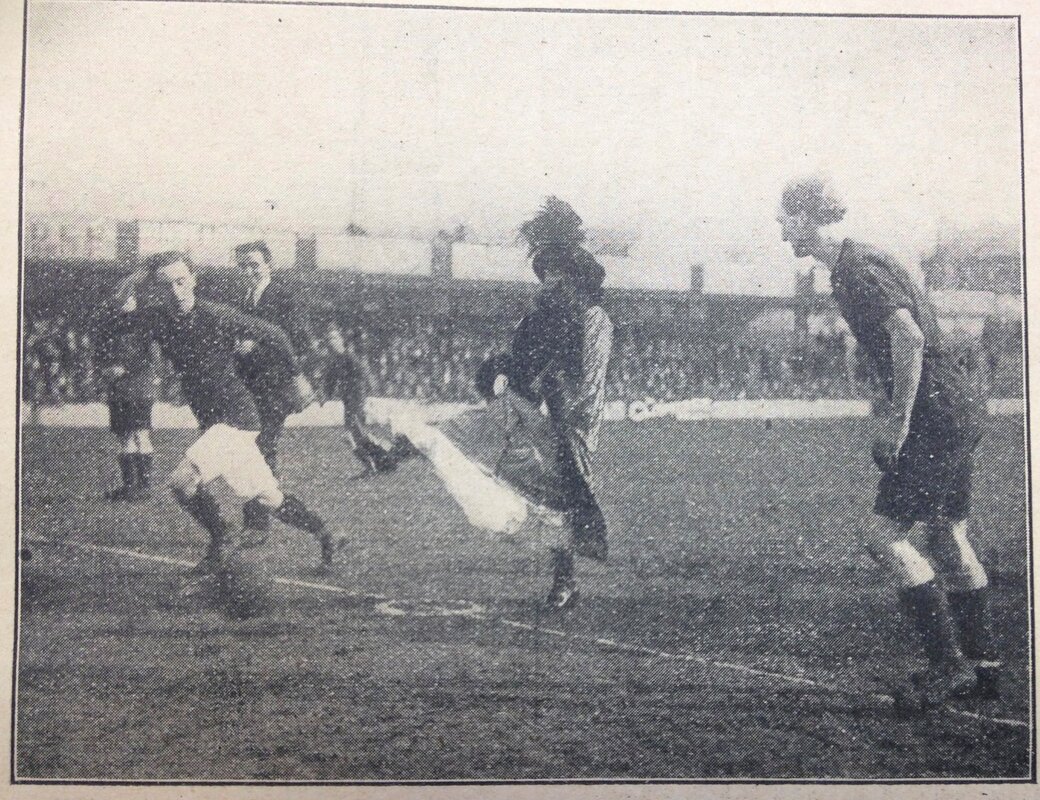|
All images by Jacky Fleming I'm collaborating with Scary Little Girls for the fourth season of their Salon de la Vie project - on everything you didn’t know about the suffragettes and their creative campaigning! We’ll combine recorded extracts, songs, special guests and live shows in this season to celebrate the wild, wonderful, wise and witty women of the first wave.
Join us for… June 2nd, Votes for Children! A look at the young people who supported the suffrage movement and found their own voice in the process. June 16th, Birds of a Feather. We will hear about plans to fill Parliament with suffragette parrots, talk about how the movement campaigned not just for votes for women but to end vivisection, and explore the links between vegetarianism and suffrage. June 30th, Nobody Expects the Suffragettes! Site specific, pop up and random acts of activism all characterised the creative shenanigans of suffragists in the theatre and entertainment industries, and in this Salon we celebrate some of the most unexpected! July 14th, The Woman’s Theatre. Here we will look at the way suffrage campaigners imagined a theatre they could be part of, including female producers and playwrights, crèches, and an end to the casting couch… so much to admire and yet to apply to the modern mainstream… July 28th, Taking the Stage! Our all live season finale bringing the work of Elizabeth Robins, Evelyn Glover and Cicely Hamilton to life before your very eyes! Expect digital mayhem, songs, short scenes and feminist fun for all! Tickets for this £5, the only Salon of the season we’re charging for and we are super grateful for your support! About Salon de la Vie Now coming up to its fourth season, Salon de la Vie is our fortnightly series of 15 – 20 minute extravaganzas of songs, storytelling, merriment and conversation. Focusing each time on an awe-inspiring, remarkable and brave human from the world of film, music, literature and history, and drawing parallels with the achievements of activists today, we celebrate how people positively embody the change they want to see in the world, for themselves and for others.
0 Comments
Reading Eighteen - 18 February 2021
The Apple by Inez Bensusan (1911) Edith by Elizabeth Baker (1912). Readers: Catherine Harvey Green, Natalie Harper, Annie Walker, Jamie Newall, Sajeela Kershi, Maggie Saunders, Velma Von Bon Bon, John Fleming, Jemma Churchill, Stephanie Fayerman. Reading Nineteen - 23rd February 2021 First two acts of Woman on Her Own by Eugene Brieux, translated by Charlotte Shaw (1913). Readers: Philippa Ritchie, Michelle Claire, Nick Dutton, Bronwyn Elizabeth, Velma Von Bon Bon, Sajeela Kershi, Lucy Stevens, Rachel Creeger, Annie Walker, John Fleming,\Stephanie Fayerman. Readings Fourteen and Fifteen - 26th November 2020 My Little Sister by Elizabeth Robins (1913)
Readers: Sarah Annakin, Bronwyn Elizabeth, Stephanie Fayerman, John Fleming, Sarah Ford, Catherine Harvey Green, Mufrida Hayes, Sioned Jones, Michelle Kelly, Sarah McCourt, Charlotte Moore, Jamie Newall, Philippa Ritchie, Maggie Saunders, Bob Sinfield, Lucy Stevens Readings Twelve and Thirteen - 22nd November 2020 Where Are You Going To? by Cicely Hamilton (1914) Readers: Sarah Annakin, Rachel Creeger, Bronwyn Elizabeth, John Fleming, Maroussia Frank, Mufrida Hayes, Michelle Kelly, Sarah McCourt, Charlotte Moore, Jamie Newall, Maggie Saunders, Alison Skilbeck, Lucy Stevens, Genevieve Swallow, Sarah-Louise Young Reading Nine - 15th October 2020 Supposing by Sewell Collins (1913) The First Actress by Christopher St John (1911) Readers: Sarah Annakin, Nick Dutton, Stephanie Fayerman, Maroussia Frank, John Fleming, Catherine Harvey Green, Michelle Kelly, Sajeela Kershi, Sarah McCourt, Charlotte Moore, Jamie Newall, Bobbie O'Callaghan, Philippa Ritchie, Maggie Saunders, Velma Von Bon Bon, Annie Walker, Faye Wilson Reading Eight - 8th October 2020 A Bit of Blighty by Evelyn Glover (1917) When Women Rule by Ned Joyce Heaney (1913) Readers: Sarah Annakin, Maroussia Frank, John Fleming, Mufrida Hayes, Genevieve Swallow, Annie Walker, Alison Walls Reading Seven - 15th September 2020 The Parrot Cage by Mary Shaw (1914) An Allegory by Vera Wentworth (1911) Readers: Janice Connolly, Stephanie Fayerman, John Fleming, Catherine Harvey Green, Sajeela Kershi, Charlotte Moore, Jamie Newall, Maggie Saunders, Bob Sinfield, Lucy Stevens, Genevieve Swallow, Annie Walker Reading Six - 8th September 2020 Her Will by Christopher St John (1914) At the Gates by Alice Chapin (1909) Readers: Caroline Cooke, Stephanie Fayerman, Emma Fenney, Sarah Ford, Lucy Frederick, Kathryn Martin, Charlotte Moore, Jamie Newall, Bob Sinfield, Alison Skilbeck, Lucy Stevens, Genevieve Swallow Reading Five - 25th August 2020 Honour Thy Father by H. M. Harwood (1912) Criminals by George Middleton (1915) Readers: Rob Bond, John Fleming, Mark Huckett, Charlotte Moore, Jamie Newall, Alice Robinson, Maggie Saunders, Lucy Stevens, Genevieve Swallow |
NaomiThoughts, reflections, bits of research Archives
April 2023
Categories
All
|

 RSS Feed
RSS Feed